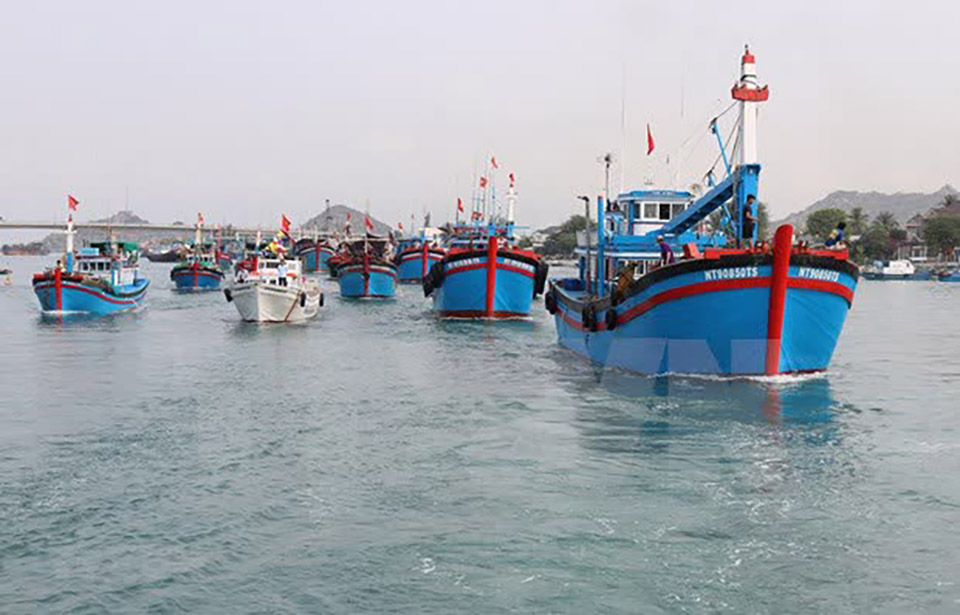
From October 10 to 18, a delegation of the European Commission (EC) was in Vietnam to examine remedies for the “yellow card” that was issued following alleged illegal, unreported, and unregulated (IUU) fishing in 2017.
This is the fourth time the EC delegation has conducted on-site examinations and technical work in Vietnam. The inspection targeted the implementation of the EC’s recommendations on IUU fishing, with a focus on the tracking of fishing vessel activities in Vietnamese waters, vessel arrivals and departures at ports, and their activities at sea. It also included tracing the origin of imported raw materials and seafood.
According to the Ministry of Agriculture and Rural Development of Vietnam (MARD), the inspection delegation highly evaluated Vietnam’s efforts to combat IUU fishing, especially the Government’s determination, directions, and instructions in anti-IUU fishing.
It is noteworthy that the EC said Vietnam had done well regarding legal matters, one of the groups of recommendations made by the EC to Vietnam to solve IUU fishing. The EC spoke highly of the revisions Vietnam has made to the legal framework.
The EC mission also acknowledged the transition from spontaneous fishing to responsible fishing in Vietnam. Local functional agencies have strengthened control of fishing vessels entering and leaving local ports and prevented ships from going fishing without meeting prescribed requirements such as installing a cruise well-deployed tracking and monitoring system.
Seafood traceability has been considered one of the important contents of controlling ships at sea. Law enforcement forces at sea have stepped up patrols to prevent many fishing vessels from violating foreign waters.
However, the issue has yet to be completely solved, with limitations and challenges remaining, MARD said. The key issue of actual implementation results at the local level is still limited in monitoring, controlling, and supervising fishing vessel activities. The EC team noted that the IUU fishing penalty rates were still low because sanctioning violations of IUU fishing was not strict.
The delegation therefore asked authorities of all coastal localities to seriously enforce the legal regulations in the Law on Fisheries, especially the rules on vessel monitoring systems (VMS) installation as well as on vessel registration, licensing, and marking.
Authorities are urged to strictly prohibit local vessels from illegally fishing in foreign waters, avoid loss of connection with fishing boats for ten days, and eliminate the “three-no’s” for ships (no inspection, no registration, and no license).
EC inspectors continued to recommend that Vietnam needs to take measures to strictly handle responsibilities for local organizations and individuals that do not fulfill their assigned responsibilities and tasks and illegal businesses.
Virginijus Sinkevicius, European Commissioner for Environment, Oceans and Fisheries, said the EC would support Vietnam in its efforts to develop ecological, circular, and low-emission agriculture, transforming livelihoods in the fishing industry. He stressed that the EC aims to assist Vietnam to become a global model in sustainable fisheries development and biodiversity conservation.
Regarding the official results, the mission would report the inspection results to the EC’s Directorate-General for Maritime Affairs and Fisheries before a decision on the removal of the “yellow card” warning for Vietnam may be issued.
It is also expected that the next EC inspection will take place in May or June 2024. (NNT)






